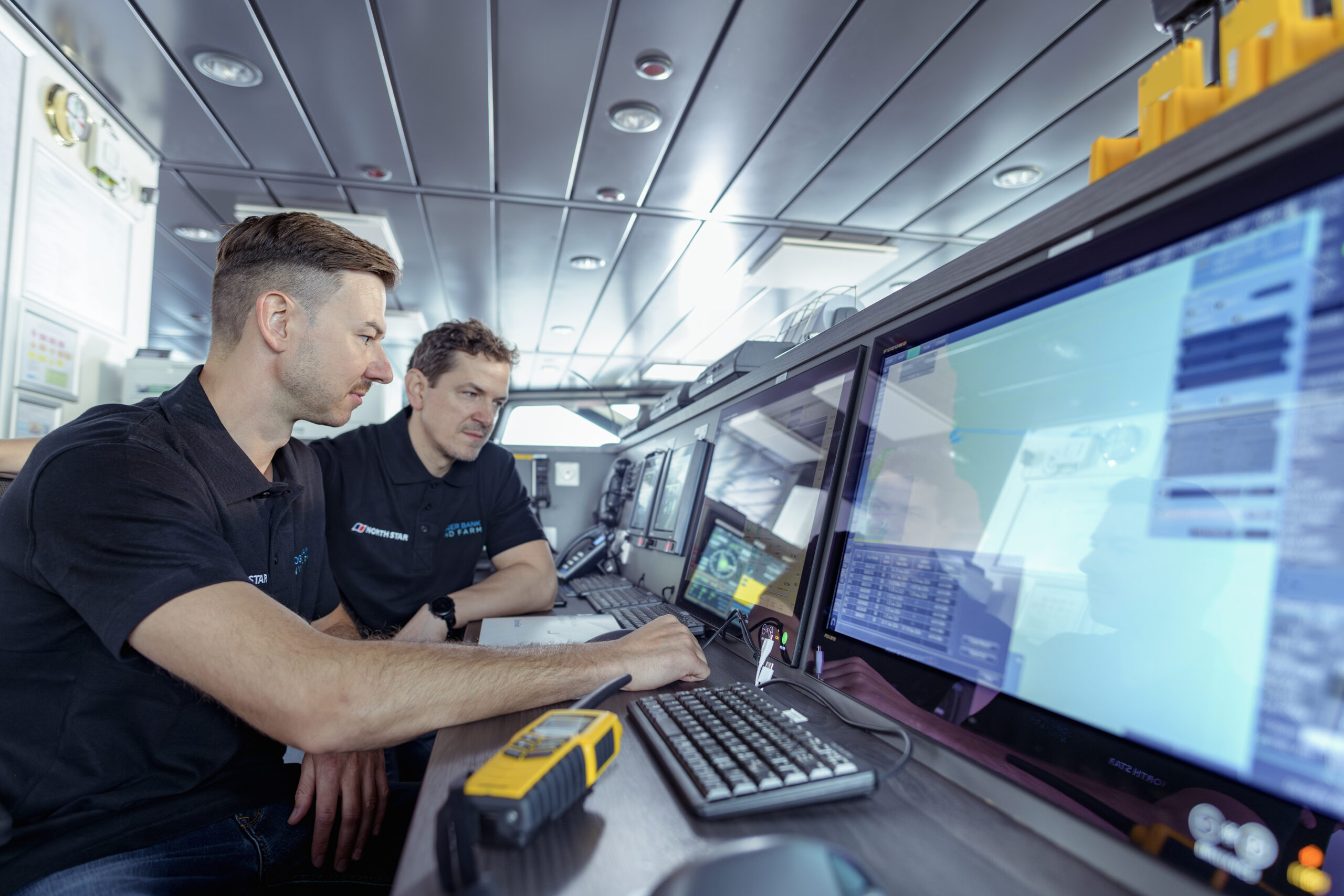
Officer Training
An officer trainee is a fully funded three year programme, which leads to both an academic and professional qualification known as a certificate of competency, issued by the Maritime Coastguard Agency.
A cadetship is sponsored by either a shipping company or charitable organisation and will cover all aspects of training, including college fees, travel costs and a monthly bursary payment towards living costs.
All officer trainees are enrolled on approved courses at a UK maritime college, that lead to a professional qualification as well as a nationally recognised educational qualification.
These include:
– Higher National Certificate/Advanced Certificate
– Higher National Diploma/Advanced Diploma
– Foundation Degree (FD) or Scottish Professional Diploma (SPD)
– Bachelors or Honours degree
Entry requirements for Officer Trainee Training are a minimum of 4 GCSEs
– 4-9, National 5s – A-C or Standard Grades
– 1-2 in Maths, English and at least one science-based subject.
The content, duration and timings of each of the programmes will vary according to the particular course, but the core knowledge required for MCA certification requirements for onboard training are the same for all. Cadet training in the UK is broken down into periods, commonly referred to as phases, of which there are five, alternating between college learning and sea time:
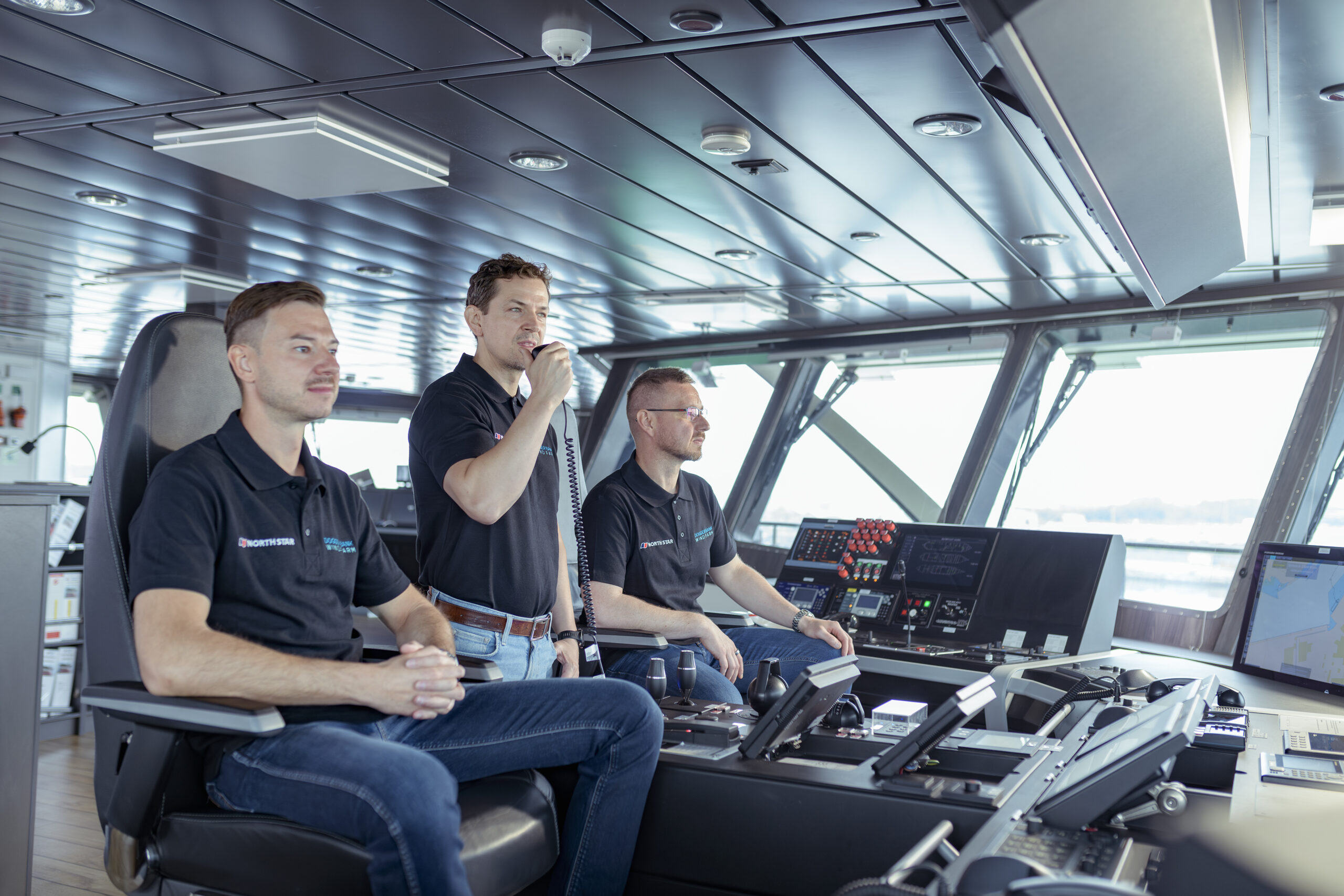
Phases at college develop the skills, knowledge and understanding required to gain a UK Certificate of Competency. The college/university learning covers specific modules as well as mandatory short courses, covering safety and technical training subjects, which are integrated into the course.
There are multiple colleges in the UK that provide Officer Cadetship training. You can find out more about their facilities and open days on their websites:
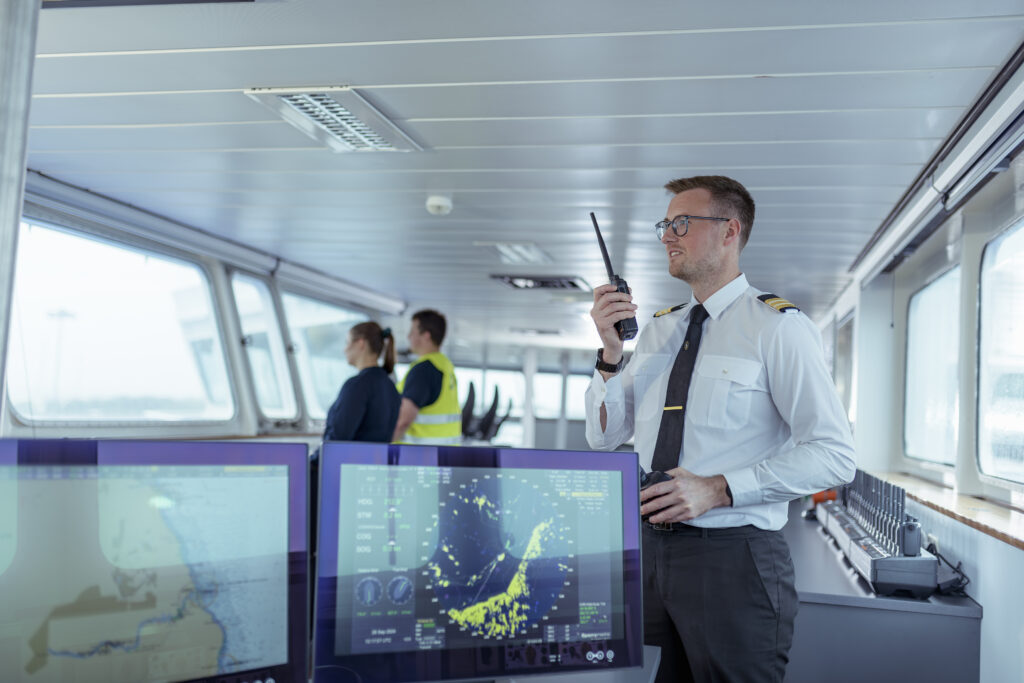
A Navigation (Deck) Officer is a vital member of the ship’s management team – responsible for making decisions on steering and manoeuvring the ship, controlling navigation and communications, so it’s important to be a good team member, decisive and calm. This role is for those interested in technology and have good mathematical, written and verbal skills, as well as enthusiasm and self-reliance.
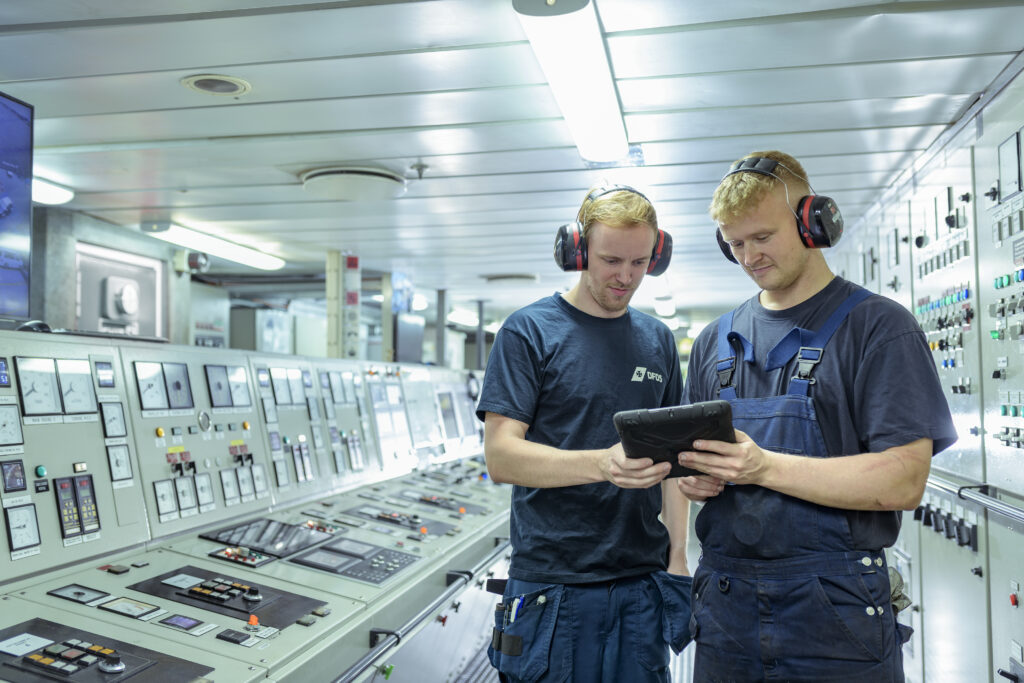
Engineering Officers operate and maintain all the propulsion, power generation and distribution systems throughout the ship. Engineering Officer Cadets need to be practical, resourceful and have an interest in mechanical and electrical systems. Along with good maths, written and verbal communication skills, this role is suited for individuals who are decisive, calm, curious and are prepared to learn about new technology whilst harnessing new skills.
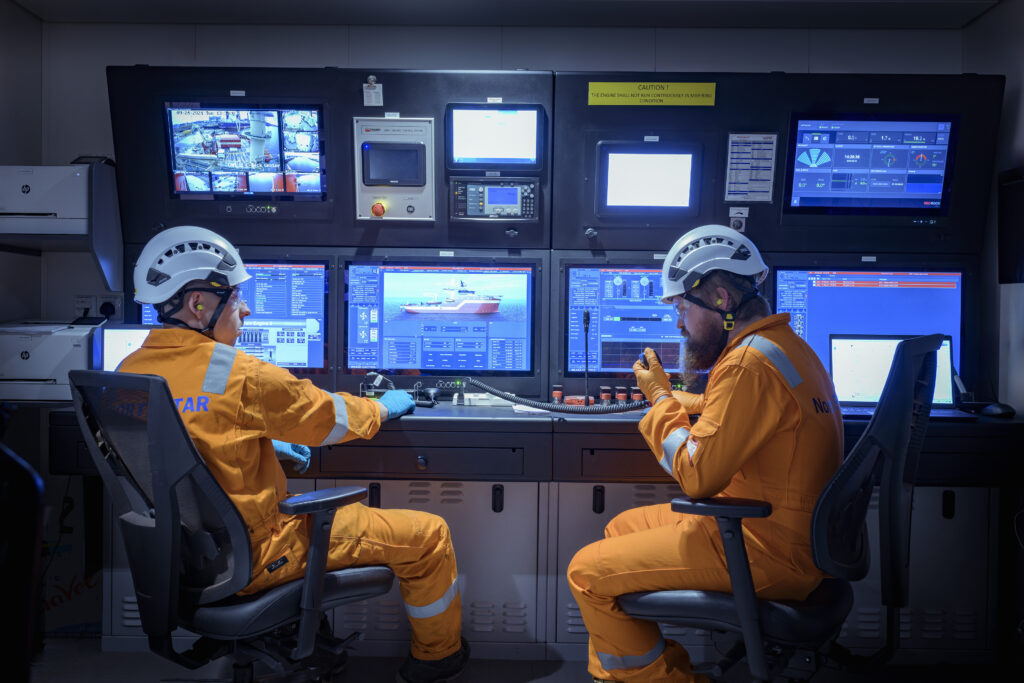
The Electro-Technical Officer (ETO) monitors all onboard electrical equipment – maximising the operational safety and efficiency of the vessel. ETO Cadets should be practically minded and interested in electrical and electronic control and power systems. This role work closely with the engineering department aboard, so teamwork and collaboration is key.
Individuals may become an Officer of the Watch via apprenticeship programmes. The current routes are
– OOW 500gt (Near Coastal)
– Small Vessel Chief Engineer 3000gt/9000kW
If you don’t have the right qualifications to join an officer programme and you want to take that route, there are pre-cadetship routes which you can explore. These courses last around a year and aim to develop your skills to get you ready for an officer level course in the Merchant Navy. You need to apply to them directly though the related nautical college. You can find a list of options available below:
– Bournemouth and Poole College
– Brockenhurst College work with Warsash Maritime School
– City of Glasgow
– Fleetwood Nautical Campus
– South Shields Marine School
If you are a rating looking to study towards your first certificate of competency or have previously worked as an Electro-Technical Officer, yacht, workboat or tug crew and are looking to gain STCW certification, you may be eligible for funding through the John William Slater Memorial Fund. You can find out more on the Marine Society and Sea Cadet website Slater Scholarship – Learn About the Slater Scholarship – Marine Society.
How to apply
There are various organisation who sponsor officer cadet training, these include:
– A shipping or ship management company – cadets would be sponsored, managed and obtain their sea time directly by the company.
– A training management company (TMC) – these organisations have a broad client based and manage cadets training on their client’s behalf.
– A charitable organisation – is further option of sponsorship. Sea time can be carried out on a number of vessels belonging to a range of shipping companies.
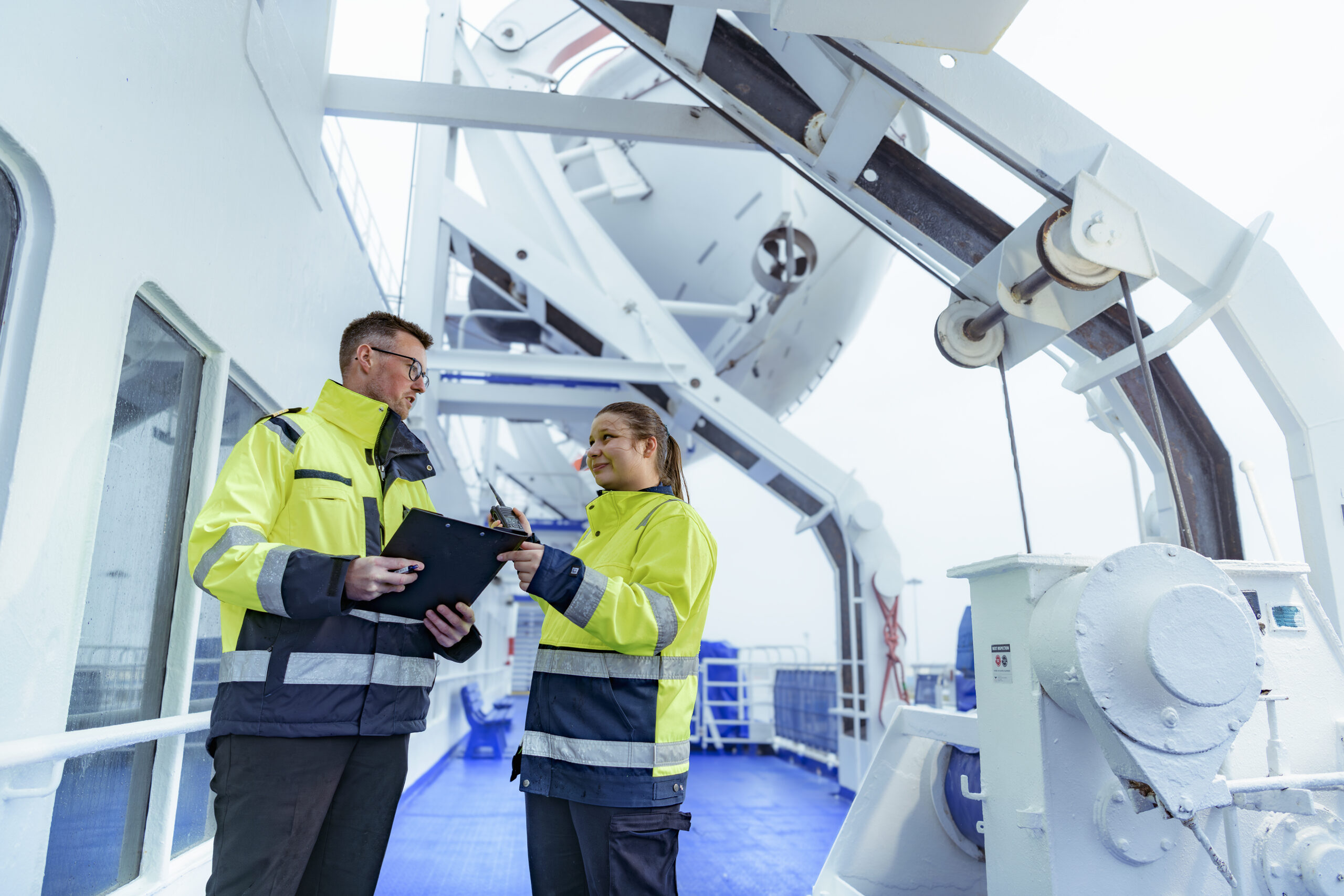
Sponsoring companies
There’s a broad range of shipping companies and charities who sponsor maritime training.
These are the companies that could fund your maritime training. Ready to set sail?
Shipping and Ship Management Companies
– Pritchard-Gordon Tankers Ltd
– James Fisher and Sons Crewing Services Ltd
– Pacific Nuclear Transport Ltd (PNTL)
Charitable Organisations
– The Corporation of Trinity House
– Maritime Educational Foundation
Training Management Companies
– Ship Safe Training Group Ltd
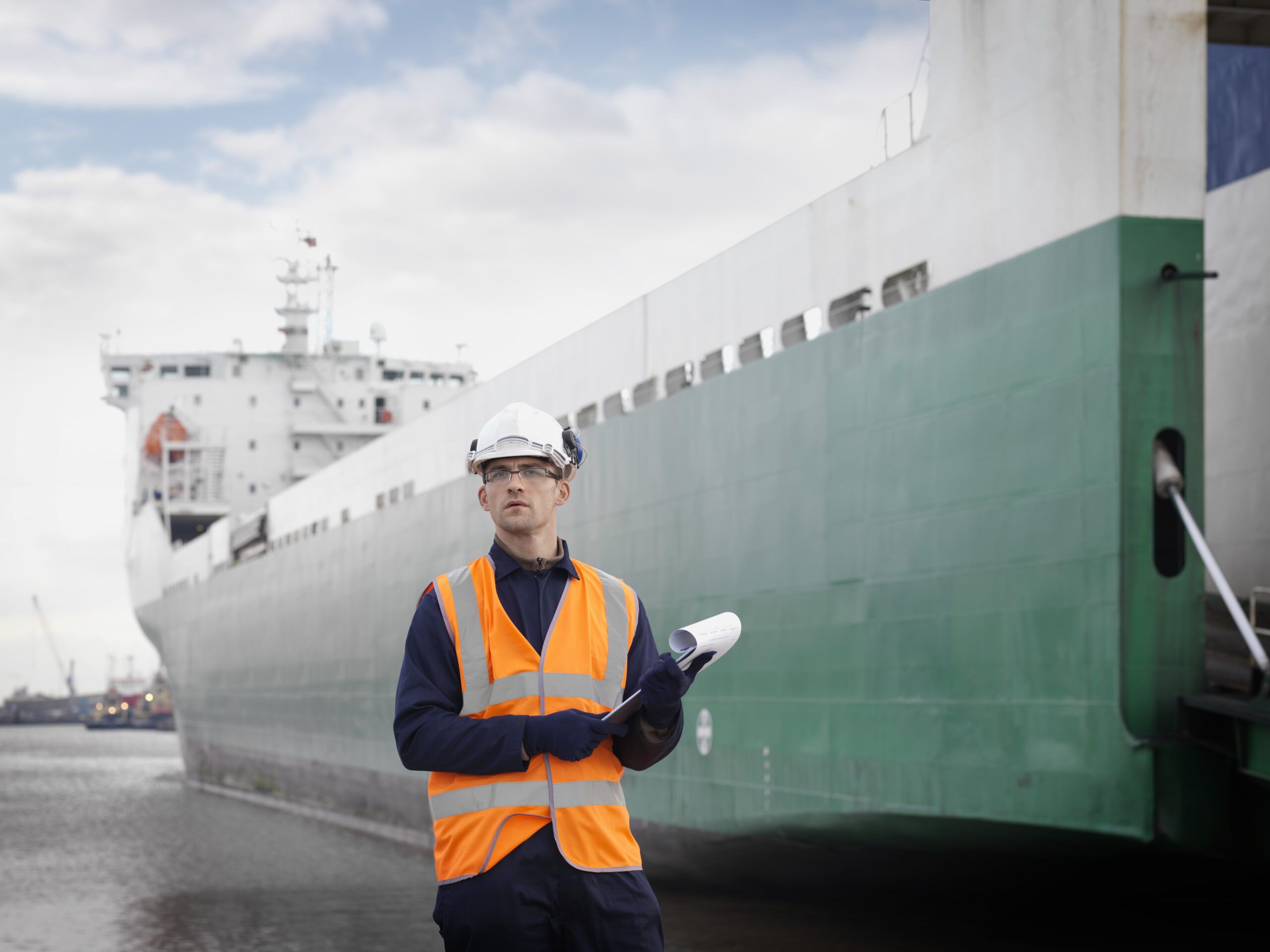
Ratings Training
Ratings’ is a general term for a wide variety of skilled seafarers in support roles in all departments, the work can involve a wide range of tasks essential to the safe operation and maintenance of the ship. There are several routes to become a Rating, depending on the area you decide to work in.
There is no minimum academic standard for entering the industry as a Rating, but some companies may ask to see a minimum of three GCSEs or Scottish standard grades. To begin a career at sea as a Rating, all applicants must pass a Seafarer Medical Certificate (ENG1) and complete basic STCW training to obtain the relevant certification for working at sea.
Below are some examples of Ratings roles on board ship:
Deck Ratings steer the ship, keep watch and assist the Navigation (Deck) Officer in a range of navigational, operational and cargo duties including mooring. Deck Ratings also carry out maintenance and contribute to the security of the vessel.
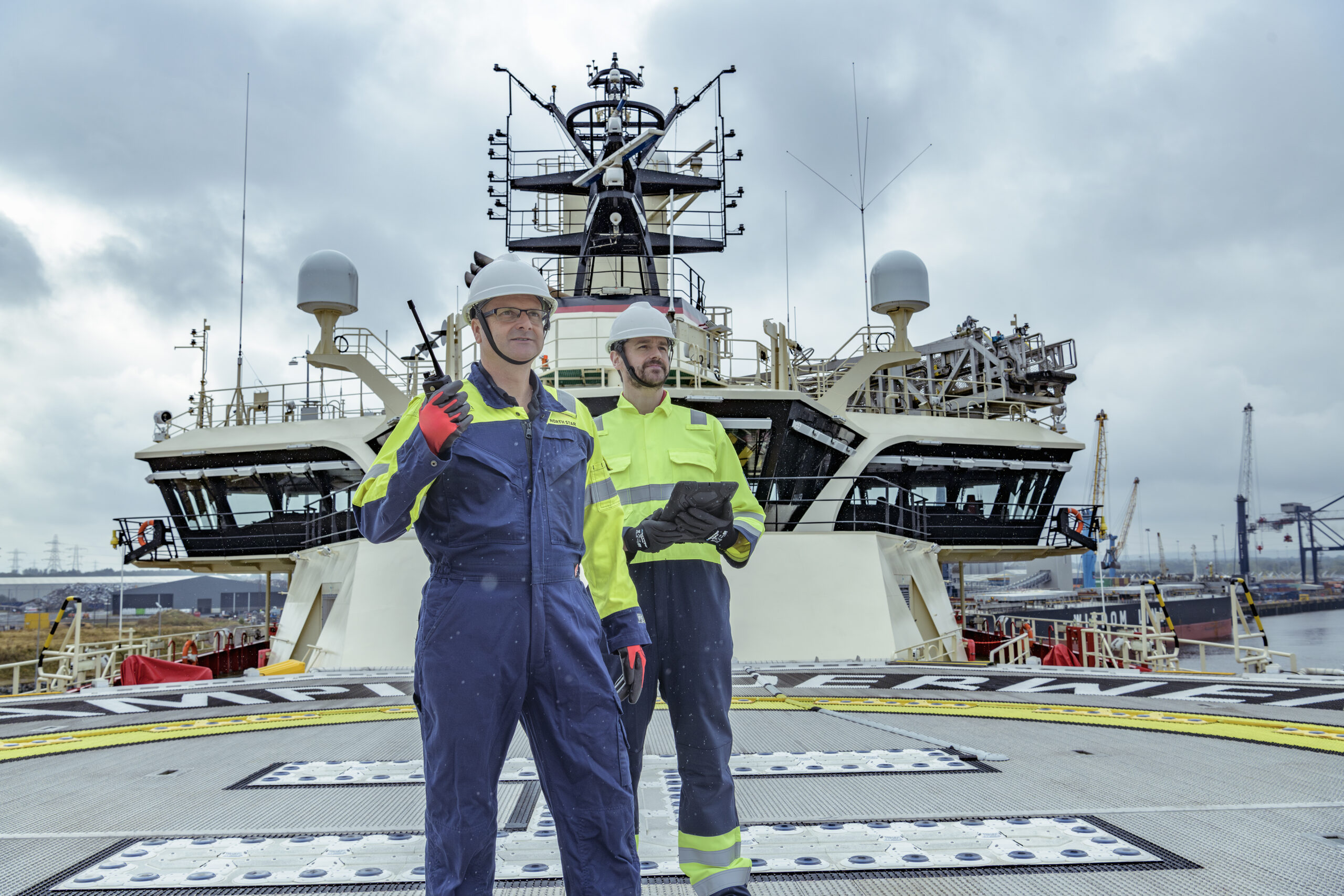
Engine Room Ratings carry out a wide range of mechanical, cleaning and watchkeeping duties. They are essential to keeping equipment and safety regimes maintained without incident in the ship’s Engine Room.
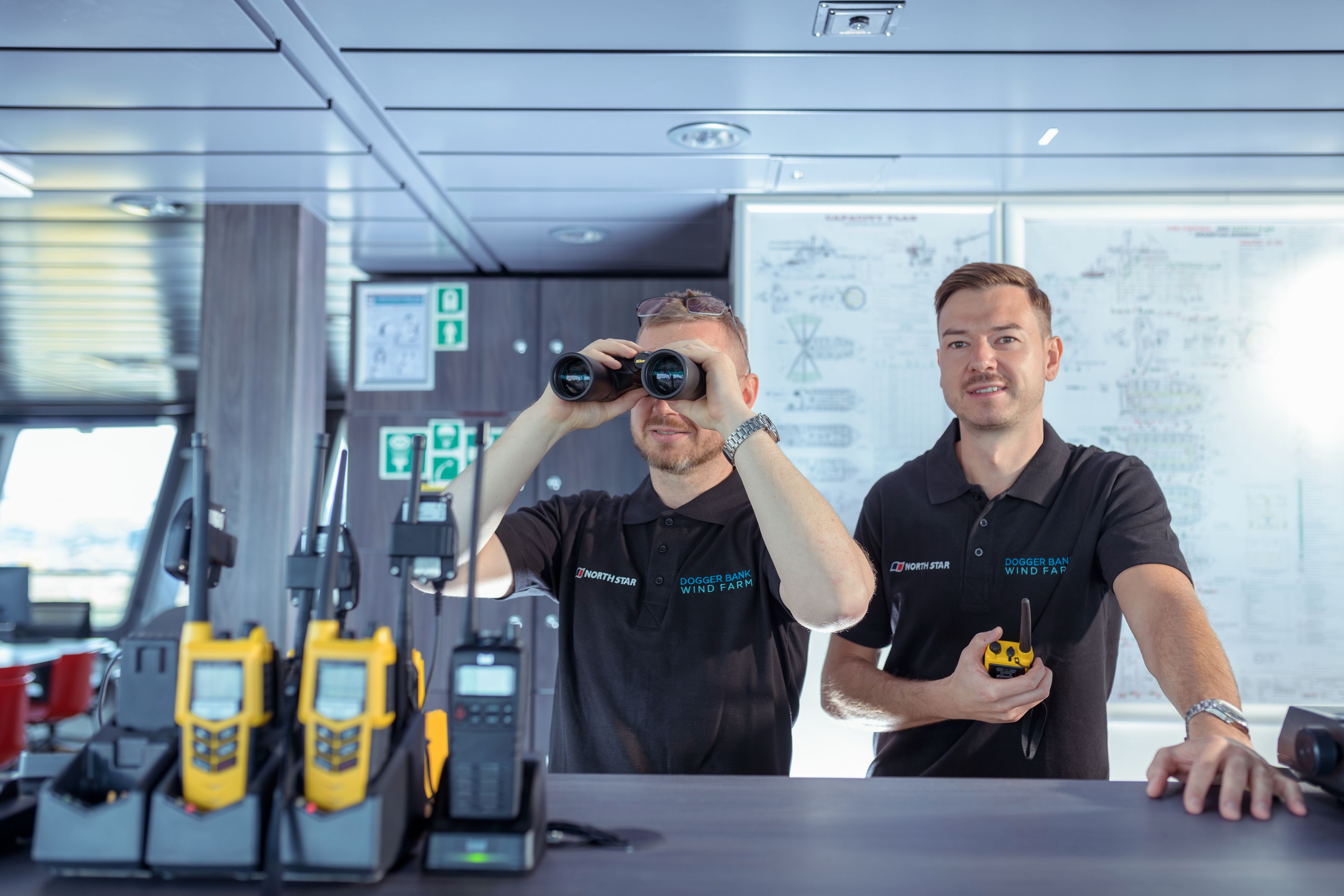
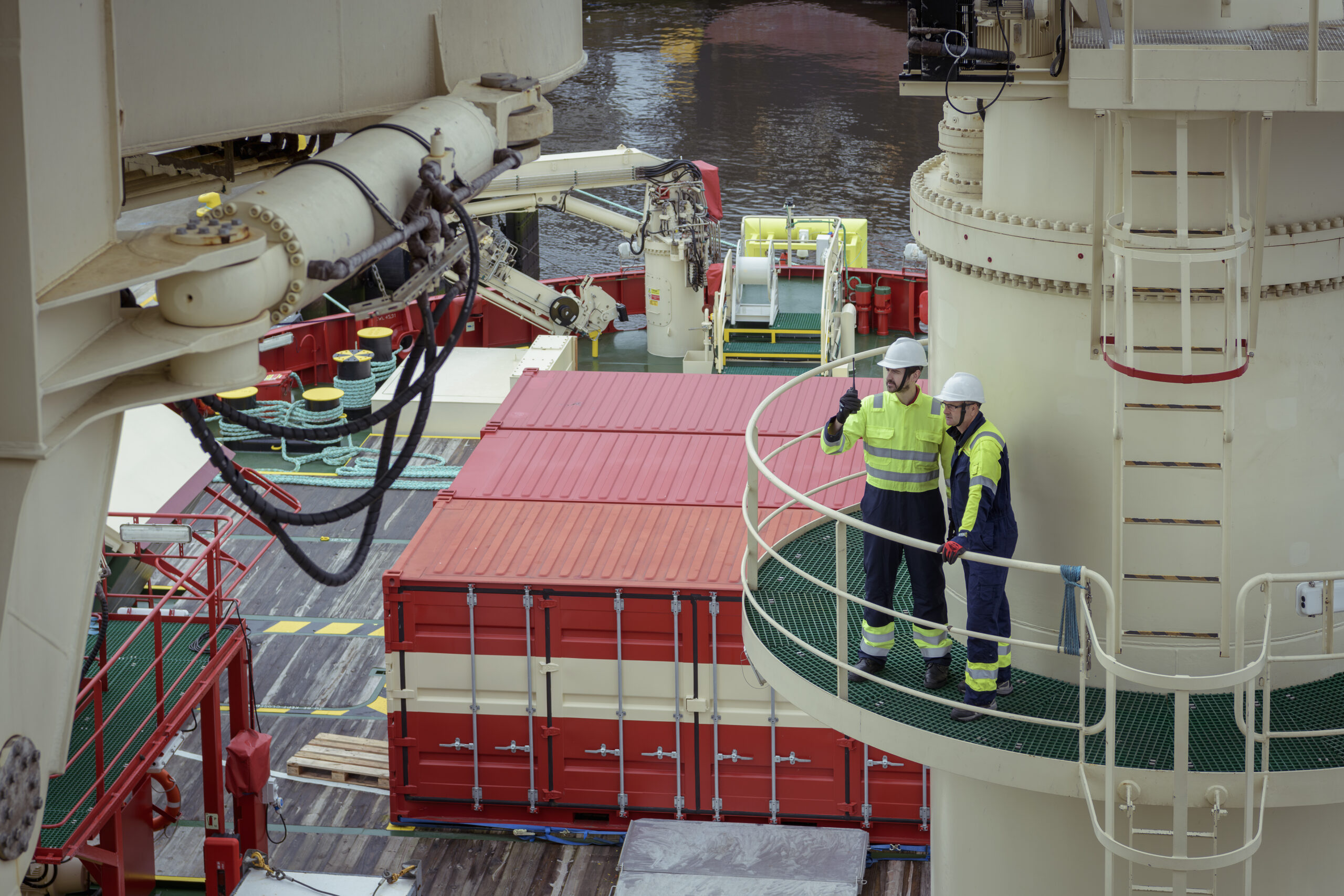
Hospitality and Onboard Services (OBS) Ratings are key service roles on every ship, from steward work in the bar and mess room to cleaning cabins and porter work. Passenger ferries and cruise ships also need a wide range of entertainment and personal service jobs, from DJing and hairdressing to nursing and photography. To apply for any roles in hospitality or other onboard services, an application must be made directly to the company or their hiring agent.
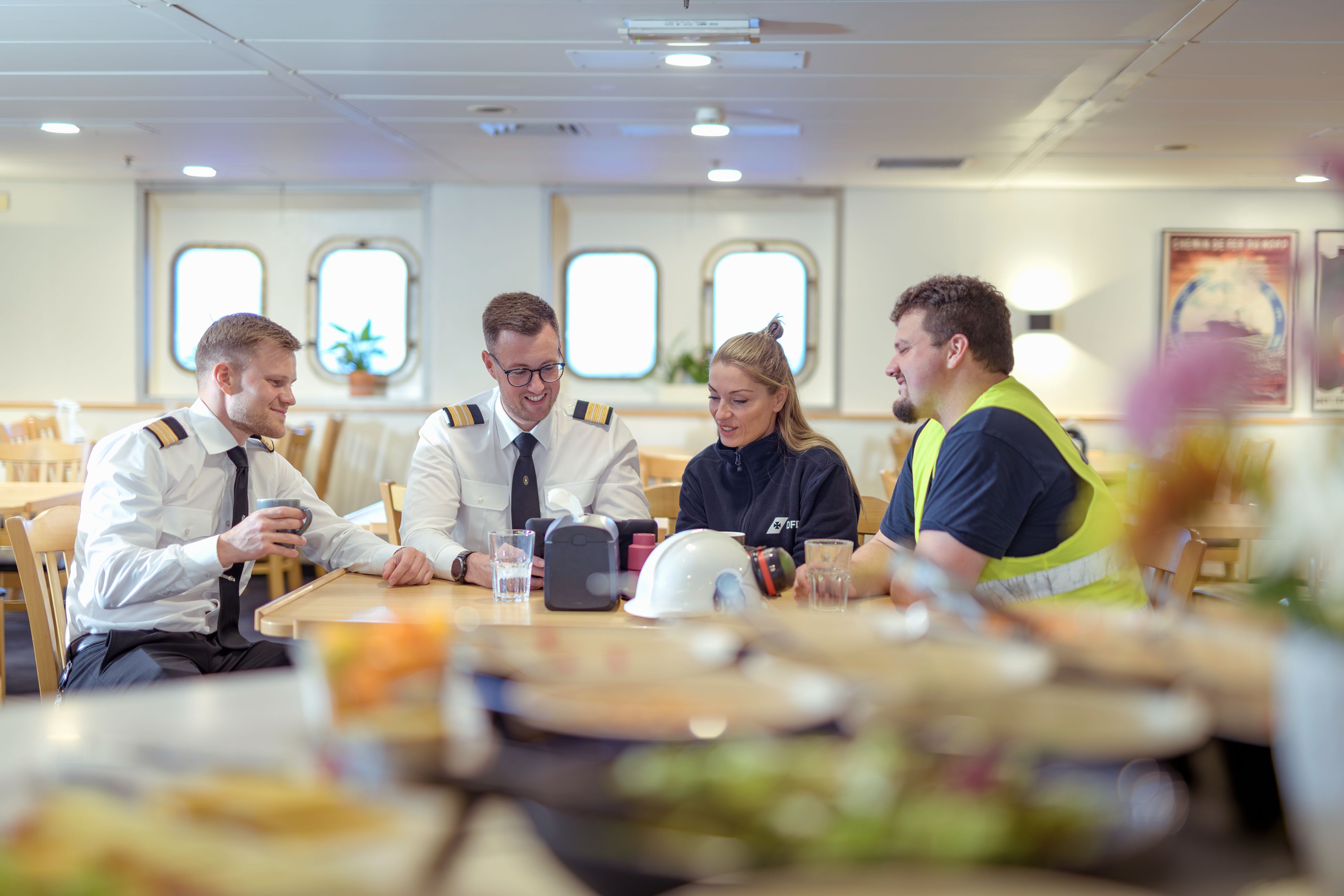
You can find out more about apprenticeship via the following approved training providers:
– Marine Society and Sea Cadets
– National Maritime Training Centre
– 54North – Keeping the Fishing Industry Alive Through Training
Rating Apprenticeships are when an individual is paid to train on board ships by experienced professionals and alternating periods of study at a maritime college. Apprenticeships usually last around 18-24 months, however this can vary. The current apprenticeships available are:
– Seafarer (deck rating) apprenticeship
– Maritime mechanical and electrical mechanic apprenticeship
Commercial Fisher
Becoming a commercial fisher in the UK involves several steps, and there are various training courses and qualifications required at different stages of your career. The industry offers opportunities for progression, whether you’re starting as a deckhand or working towards becoming a skipper, engineer, or even owning your own fishing vessel. Find out more here.
How to apply
Rating Apprenticeships come up throughout the year and applications are made directly to a company. Their application processes may vary, the following companies offer one or more of the apprenticeships:
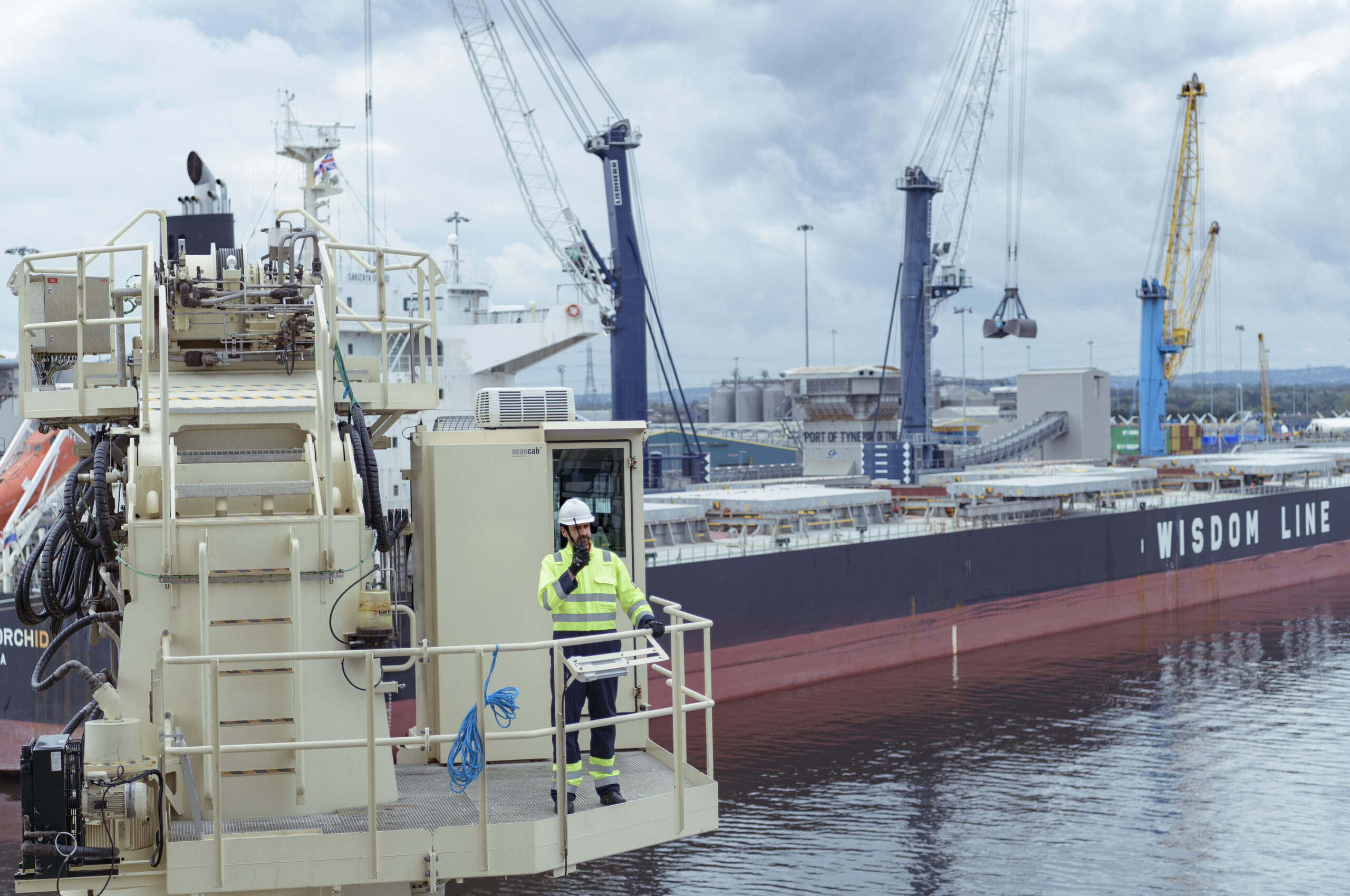
Frequently asked questions
How do I get more experience?
If you don’t have the right qualifications to join an officer programme and you want to take that route, there are pre-cadetship routes which you can explore. These courses last around a year and aim to develop your skills to get you ready for an officer level course in the Merchant Navy. You need to apply to them directly though the related nautical college. You can find a list of options available below:
– Bournemouth and Poole College - Brockenhurst College work with Warsash Maritime School - City of Glasgow - Fleetwood Nautical Campus - South Shields Marine School
Jubilee Sailing Trust – Take the helm, set sail and keep watch. The Jubilee Sailing Trust (JST) owns the S.V. Tenacious. These tall ships give anyone, regardless of ability, the chance to experience what life is like sailing the high seas.
Maritime Museums – Back on dry land, there are over 200 UK maritime museums that paint a fascinating picture of life at sea – then and now. Book a tour, visit an exhibition or look out for maritime careers events and study days.
Ocean Youth Trust – With six regional centres across the UK, the Ocean Youth Trust gives people aged 12-24 the chance to crew a ship. Along the way you’ll pick up valuable skills that can help with personal development.
Sea Cadets – Aged 12-18 and craving adventure? In the Sea Cadets you could learn to hoist a sail, kayak down a river or dive off the British coast. Focussed on teamwork, this nationwide voluntary organisation helps young people take on nautical challenges, gain new skills and forge friendships. And there’s a designated group for under 10s.
Tall Ships Youth Trust – Start your sailor training at 14 with the Tall Ships Youth Trust. This registered charity has been helping 14-25 year-olds learn to crew vessels since 1956.
When should I apply?
You can apply at any time of the year.
There are two Officer intakes annually – the main is in September, but there’s a second in January. You don’t need to wait for your academic results before applying, because many maritime sponsoring companies recruit up to a year before training begins.
Some shipping companies offer Ratings apprenticeships. And you should apply directly to them. The following may have vacancies:
Catering, Hospitality or Onboard Services roles need some relevant experience and qualifications beforehand.
How long will I spend training?
Officer training varies by discipline and course type, but usually takes around 3 years to complete. That includes at least 12 months at sea in the deck department, or eight to nine months in the engineering division – with voyages lasting two to three months at a time.
Ratings training is between 12 – 18 months and includes both time at sea and in college.
Do I have to meet academic requirements?
To enrol as an Officer Cadet, you will be expected to meet certain academic standards. The minimum qualifications for courses are:
- HNC / HND qualification routes – 4 GCSEs (4-9) / Standard Grades (1-2) / Nat 5s (A-C) including Maths, English & one Science Based Subject
- Foundation Degree (FD) / Scottish Professional Diploma (SPD) qualification routes – 48 UCAS points from Highers/A-Levels including Maths and/or Physics, plus the qualifications indicated for the HNC / HND routes
- BSc (Hons) / BEng (Hons) qualification routes – In addition to the HNC / HND qualifications criteria, you must hold 104 UCAS points from Highers, A-Levels and/or degree (for engineering this must include a numerate subject)
To train as a Rating, there are no specific academic requirements, but you will need to show a company you have the potential to achieve the qualification.
Am I too old to join?
Absolutely not – as long as you’re fit and healthy enough to pass the industry-standard ENG1 medical examination, you may apply.
What if I’ve already got a degree?
It’s unlikely your qualifications will be transferable – unless you’ve taken a Mechanical Engineering degree (or similar) and want to become an Engineering Officer.
How do I apply if I am in the Royal Navy, a mechanical engineer or have similar expertise?
Your experience will certainly help. However, you’ll still need to arrange sponsorship from a shipping company to complete the training needed.
Start by letting the Maritime and Coastguard Agency (MCA) know what qualifications you have – including copies – and the role you’re looking to apply for. They’ll be able to let you know what’s transferable, and the qualifications and sea time you need to pick up. You should also ask them for a Letter of Initial Assessment (LIA) to support your application.
You can call the Seafarer Standards and Certification Branch of the MCA on 02380 329231. Or download the application for a LIA here.
What are the medical requirements?
An ENG1 is required for working at sea and all applicants must be able to pass an assessment before going to sea.
For details of the examination, contact the Maritime and Coastguard Agency (MCA). If you’re considering taking the test before applying, they can also direct you towards approved doctors.
You can reach the MCA by calling 02380 329247 and asking for the Seafarer Standards and Certification Branch. Or read the medical certification guidance here.
Can I apply for Officer Training sponsorship if I’m from Europe?
If you’re an EU citizen ordinarily resident in the UK, you can apply for sponsorship. An address where you have been residing for over one year must be provided. Proof of English, Maths and Physics/Combined Science/Dual Science studies must also be supplied and meet the entry requirements.
You should check with the companies directly for ratings training, however different rules apply for ratings apprenticeships.
Can I apply if I’m not from Europe?
Officer training sponsorship is only available to UK citizens and EU citizens who have lived in the UK for over 12 months.
Many shipping companies hire globally, so do investigate job opportunities directly with your preferred company.





